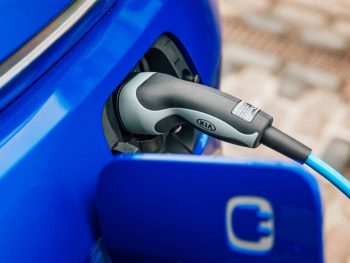Spring Budget 2020: 0% BiK rate confirmed and future rates set out
The Budget has provided long-awaited confirmation that the company car tax rates announced last year will go ahead as planned, while also setting out rates for two further years.

The 0% BiK rate for fully electric vehicles will go ahead for the 2020/21 tax year as announced in July 2019
It means that fleets can plan ahead with confidence in the rates, which were set out in July 2019 as a result of the WLTP consultation. For cars registered after 6 April 2020, the rates see most BiK brackets reduced by 2% in 2020-21, then increasing by one percentage point in both 2021/22 and 2022/23. Meanwhile all zero-emission company cars will attract a reduced appropriate percentage of 0% in 2020-21 and 1% in 2021-22, before returning to the planned 2% rate in existing legislation in 2022-23.
Although the rates had been set out last summer, there had been some concern over their adoption when the Autumn Budget was shelved for the election campaign.
And for cars registered between 1 October 1999 and 5 April 2020 inclusive, the Government has clarified that the CO2 emissions figures for company car tax and related charges will continue to be based under the New European Driving Cycle (NEDC) procedure.
In a surprising but welcome move, the Government also confirmed in today’s Budget that these rates will be frozen at 2022/23 levels for an additional two years.
Claire Evans, head of fleet consultancy at Zenith, said: “The fleet industry will take real confidence from the confirmation of Benefit-in-Kind (BiK) tax rates and the further announcement they will be frozen at 2022/23 levels for an additional two years. It gives the industry the certainty it needs and provides a commitment to low rates for drivers of EVs.”
And BVRLA chief executive Gerry Keaney said: “Having a roadmap for the future of company car tax up to 2025 removes the uncertainty that we know stifles business decisions.”
The announcement of the rates, which need to be adopted into law through the Finance Bill, was accompanied by the news that the van benefit charge and the car and van fuel benefit charges will increase by the Consumer Price Index from 6 April 2020. The flat-rate van benefit charge will increase to £3,490, the multiplier for the car fuel benefit multiplier will increase to £24,500, and the flat-rate van fuel benefit charge will increase to £666.
There was also news on capital allowances for business cars, which are now being extended to cover the April 2021 to April 2025 period. From April 2021, only zero-emission cars will be eligible for the first-year allowances – compared to the limit of 50g/km currently – while the threshold for the main rate writing-down allowance (WDA) of 18% drops to 50g/km from the current 110g/km. The special rate WDA of 6% will apply to higher polluting cars with emissions above 50g/km (currently above 110g/km). First-year allowances for zero-emission goods vehicles and natural gas and hydrogen refuelling equipment will also be extended.
The threshold for the lease rental restriction will also drop to 50g/km.
Tom Brewer, head of sales and marketing, VWFS | Fleet, added: “The Government has announced that they will be putting significant investment into supporting the switch to electric vehicles by confirming the 0% BiK rate for 2020-21 and extending the plug-in car grant to 2022-23, as well as providing support for plug-in vans, motorbikes and taxis. We are pleased to see the government taking real steps to help businesses lower their emissions for good. We hope that company car drivers and fleet managers feel incentivised to make the transition to electric vehicles on their road to zero.”












